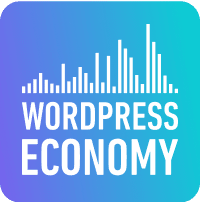How to be Concisely Comprehensive with Web Content
This guest post was written by Joanne Amos a writer with Wholegrain Digital, a London based agency that focuses on WordPress development. To learn more about Wholegrain Digital, visit their website.
Ask anybody who works in web design which question they’re asked most frequently and chances are one of their first replies will be, ‘how long or short should my content be?’
This is a hotly debated topic for a very good reason – there’s a ton of conflicting information out there, and both sides have some very good points.
So without further ado, let’s delve into the debate.
The Long and Short of it
First, let’s look at both sides of the argument. On the one hand, the Internet is an interactive media. Unlike television or radio, where we sit back and let the information wash over us, we turn to the web when we want to solve a specific problem or find a particular piece of information. So we don’t want to wade through a load of unnecessary words. We want to be able to skim the page and find what we’re looking for. Quickly. So our content should be short and sweet.

But on the other hand, we have SEO to consider – search engines need to have enough information on the page to be able to accurately rank the website. And as for those folk who are seeking a specific answer or solution, well, they need to be able to find enough information to meet their needs.
The fact is, there is no optimum length of content. Each website, business, and industry is unique, as are their customers. So what works for one isn’t going to work for another.
Likewise, the purpose of your content affects its length. For example, a white paper is going to be far more in-depth than a product description.
Instead of worrying about the optimum length of your content, you need to concentrate on two far more important factors: how concise your information is, and how clearly it’s presented.
A Question of Quality
With the latest round of Google updates, it’s clearer than ever that search engines are focused on quality over quantity. So instead of getting caught up in discovering the optimum length, focus on providing some meaningful content for your visitors.
Before you begin, ask yourself some questions:
- What action do you want your visitors to take on each page?
- What information do they require in order to make an informed decision about that action?
- Do they know about the available solutions to their problem?
Once you have your answers, focus on producing information-rich content that demonstrates your expertise in the field and the benefits of your product or service, and, most importantly, solves a problem for your visitors. That’s what your users want, and that’s what search engines are ranking you on.

Be Simple and Concise
This is a sticking point for many writers. When approaching website content, you need to forget much of what you learned about composition in your English classes at school; writing for the internet is a whole different ballgame.
As Jakob Nielson discovered in his seminal study on web usability in 1997, 79% of people don’t read online content; they only skim it to find the information they require. So always work with this concept when writing your content.
This means that flowery, lengthy prose isn’t going to win you any favors online – you need to edit out all the dead wood and superfluous nonsense and make sure that every word has a purpose.
Use short sentences and paragraphs, and cover a maximum of 2 or 3 ideas or concepts per page – generally speaking, the more complicated your content is, the less well it will convert. If the subject requires further explanation, consider introducing a new page, or, if you have a blog on your site, covering the topic in greater detail there.
You’re aiming to make the content as long as it needs to be. And no more…
Structure for Engagement
How you present your content on the page is of equal importance to the clarity, simplicity, and quality of it. When visitors land on your site, they don’t want to be bombarded with a wall of words. The first thing they want to determine is whether the page is going to be useful to them. So the main idea must stand out and be the focus of the page.
Place the most important information at the top of the page and, if your content has an important conclusion, summarize this first, then elaborate as much as necessary beneath.
Include plenty of white space on each page, breaking up the content into manageable chunks that are easily scannable. Include compelling and relevant subheadings to help guide your visitors, use numbered lists and bullet points where appropriate, and highlight key points in bold or italics.

And finally, always ensure that your content is written for your human visitors, not search engines. Yes, SEO is important and your content must be optimized, but this should never be at the expense of readability. Make sure you know who your target audience is, and ensure your content is written with them in mind.
Concisely Comprehensive
Ultimately there is no magic formula when it comes to word length for your web content. But that’s OK, because it isn’t really about long or short content.
What you should be aiming for is to write enough to complete the task at hand and persuade your visitors to the conversion you require – whether that’s to grow your email list, increase sign-ups for your newsletter, or sell more of your products or services – and present that information clearly on the page.
Always write for your human visitors, not for word count or search engines. And whatever you do, take the time to do a thorough proofread of the material for spelling, grammar, and punctuation before you hit publish.











